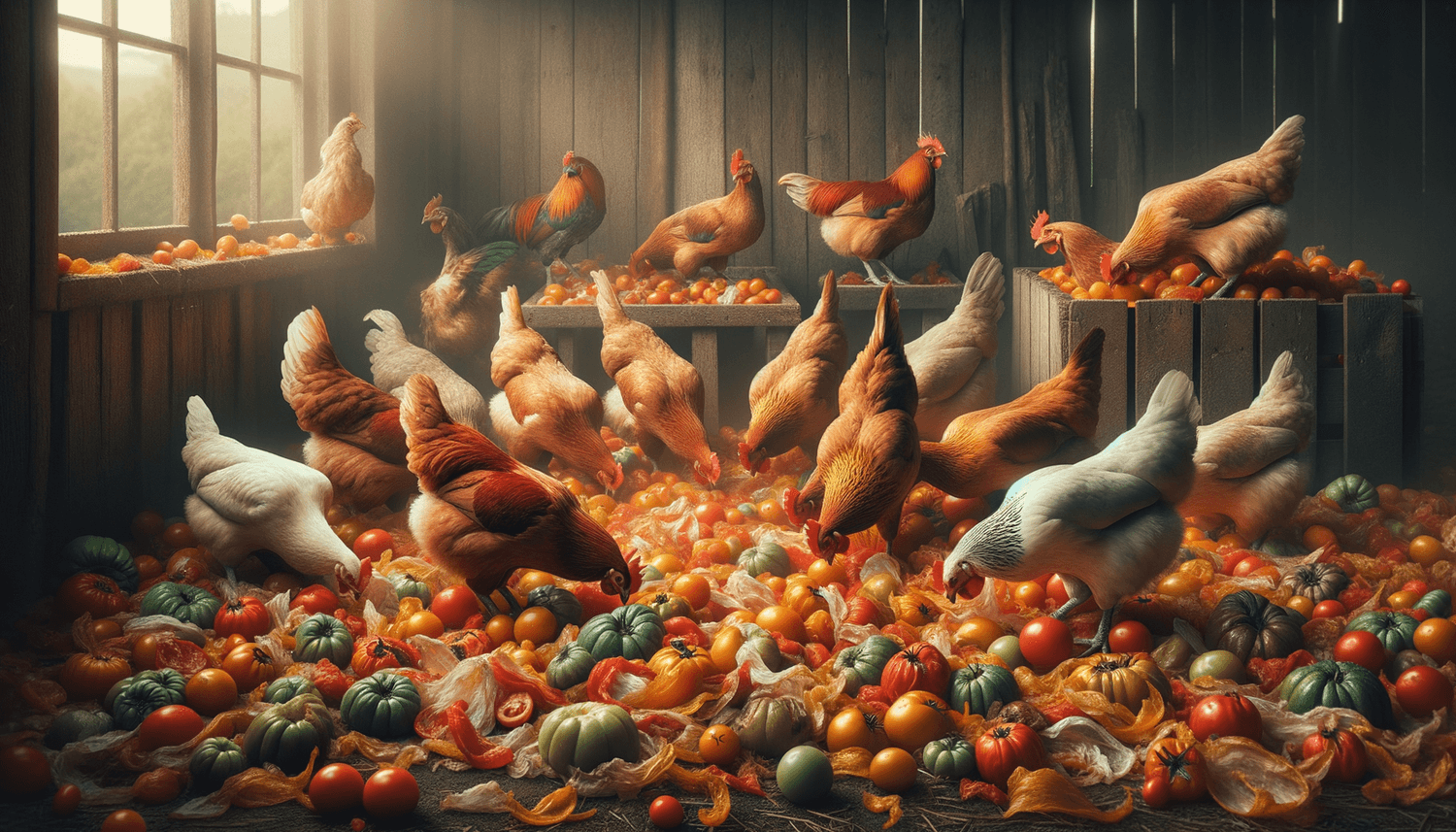As chicken enthusiasts, we love to pamper our feathery flock with a variety of tasty treats, and their love for delicious morsels keeps us wondering: what’s next on the chicken snack menu? So, can our fluffly little egg-laying machines indulge in tomato skins? In this fun and informative blog post, we’ll unravel the mystery surrounding tomato skins and their compatibility with our beloved backyard chickens. From the importance of a balanced diet, to the nutritional benefits and potential risks, as well as the best way to prepare this intriguing treat, we’ve got you covered! So, buckle up, as we take your knowledge of chicken cuisine to the next level!
Can chickens eat tomato skins?
Yes, chickens can safely eat tomato skins. Tomatoes are not harmful to chickens and contain valuable nutrients such as vitamins and minerals. Just ensure that the tomatoes are ripe and not rotten, as unripe or rotten tomatoes contain a higher concentration of solanine, which is potentially harmful to chickens in large quantities.
A balanced diet for your backyard chickens
Just like humans, chickens need a balanced diet to thrive and stay healthy. A well-rounded diet helps them maintain a strong immune system, good feather condition, and optimal laying capabilities. In order to achieve this balance, it’s essential to focus on the core component of their diet: high-quality chicken feed.
Chicken feed should primarily make up around 80-90% of your flock’s diet. This complete feed is specifically formulated to provide your chickens with all the essential nutrients they need, including proteins, vitamins, and minerals. Ensuring that chicken feed is the mainstay of their diet will keep them in tip-top shape and happily clucking away.
Now, for the fun part: treats! About 10-20% of a chicken’s diet can consist of delicious edible extras like fruits and vegetables. These tasty morsels not only add variety to their diet but can also provide additional vitamins and minerals. Remember, though, that treats should be given in moderation, as too much can disrupt the balance of nutrients your chickens need to stay healthy and productive.
Nutritional value of tomato skins for chickens.
Feeding tomato skins to chickens can indeed offer some nutritional benefits. Tomatoes are a great source of vitamins and minerals that can contribute positively to the overall health of your flock. Among these nutrients are vitamins A, C, and K, as well as potassium and magnesium. These vitamins and minerals can help boost the chickens’ immune system, support proper growth and development, and maintain overall good health.
Additionally, tomato skins are a source of valuable antioxidants, such as lycopene. These antioxidants can help to protect the chickens’ cells against damage from free radicals, which in turn can support their long-term health. Lycopene, in particular, is known for its antioxidant properties and is what gives tomatoes their vibrant red color.
Furthermore, tomatoes have a high water content, making them a hydrating treat for your chickens. This extra source of hydration can be especially beneficial during hot summer days when chickens are more susceptible to heat stress or dehydration. Providing juicy treats like tomato skins along with their regular water source can help your chickens to stay cool and comfortable, while also reaping the benefits of the essential nutrients, vitamins, and antioxidants they contain.
Nutrition table of tomato skins for chickens.
| Information | Description |
|---|---|
| Nutritional Value | Rich in vitamins A, C, and K, as well as potassium, magnesium, and antioxidants like lycopene. |
| Suggested Serving Size | Small handful of tomato skins, free of any mold or decay, as an occasional treat for your flock. |
| Safe Feeding Practices | Ensure tomatoes are ripe and not rotten; avoid feeding unripe, green tomatoes as they contain harmful solanine. |
| Preparation | Wash and chop tomato skins into small manageable pieces for easy consumption. |
| Potential Risks | Feeding unripe or rotten tomatoes can result in solanine toxicity. Over-feeding treats may disrupt nutritional balance in chickens’ diet. |
| Hydration | Tomatoes have high water content, providing extra hydration for chickens, particularly beneficial during hot weather. |
| Digestion | Feeding tomato skins in moderation can promote healthy digestion and help maintain overall good health. |
| Seasonal Availability | Tomatoes are available throughout the year, but typically most abundant during summer months. |
| Other Benefits | Antioxidants like lycopene in tomatoes can help protect chickens’ cells against damage from free radicals, supporting long-term health. |
Introducing tomatoes to your chickens
When introducing tomato skins or any new treat to your chickens, it’s best to start with a small amount and gradually increase the quantity over time. This allows you to monitor how your flock reacts to the new treat and ensures that it doesn’t have any adverse effects on their health. If you notice any negative reactions like diarrhea or listlessness, reevaluate the quantity and frequency with which you offer the tomato skins.
Other garden treats for your chickens
Beyond tomato skins, there are plenty of other garden treats that make an excellent addition to your chickens’ snack rotation. Vegetables like leafy greens, carrots, cucumbers, and peas, as well as fruits like apples, berries, and melons can provide your chickens with added nutrients and excitement. Make sure to remove any leftover bits of fruit or vegetables from their feeding area to prevent the growth of bacteria and mold, which can be harmful to chickens.
A note on plants to avoid
While many fruits and vegetables make great treats for your flock, it’s important to know that certain plants can be toxic to chickens. Avoid feeding them plants from the nightshade family, such as unripe or green tomatoes, potatoes, and eggplants, as well as avocadoes, onions, and rhubarb. Always do your research before offering your chickens a new treat.
By arming yourself with this knowledge, you can ensure that you’re providing only the best, safest, and most nutritious treats for your flock. Happy snacking!

















